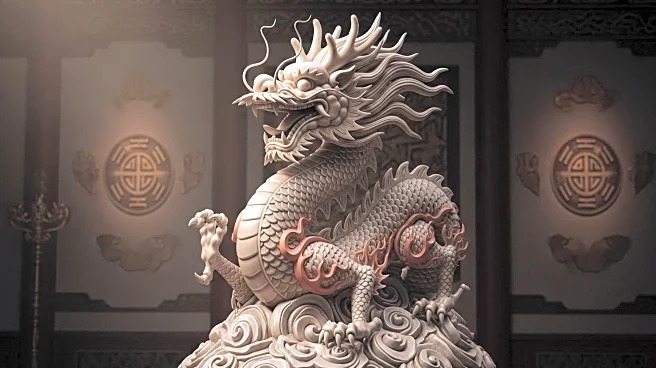What's Happening?
Chinese President Xi Jinping hosted a security summit in Tianjin, China, attended by leaders including Indian Prime Minister Narendra Modi and Russian President Vladimir Putin. The summit comes at a time when U.S. tariffs on Indian goods have raised concerns for India about its reliance on Washington. Meanwhile, President Putin's recent visit to Alaska, facilitated by President Trump, has softened Western efforts to isolate Russia due to its actions in Ukraine. Xi Jinping is leveraging these geopolitical shifts to enhance China's influence, using the summit and a subsequent military parade in Beijing to showcase China's diplomatic and military capabilities.
Why It's Important?
The summit highlights China's strategic positioning in the global arena, particularly as U.S. trade policies create rifts with traditional allies like India. By hosting leaders from Central Asia and showcasing military prowess, China is asserting itself as a key player in reshaping the global order traditionally dominated by the United States. This development could lead to shifts in alliances and economic partnerships, potentially impacting global trade dynamics and security arrangements. Countries like India may seek to diversify their international relations, while Russia finds new avenues to counter Western sanctions.
What's Next?
The outcomes of the summit may lead to increased diplomatic engagements between China, India, and Russia, potentially resulting in new trade agreements or security collaborations. The U.S. may need to reassess its trade policies and diplomatic strategies to address the growing influence of China in the region. Additionally, other countries in Central Asia might be drawn into China's orbit, further altering the geopolitical landscape.
Beyond the Headlines
The summit underscores the complex interplay of historical alliances and current geopolitical strategies. China's use of military displays and diplomatic gatherings reflects a broader ambition to redefine its role on the world stage. This could lead to long-term shifts in global power structures, with implications for international law, economic policies, and cultural exchanges.









